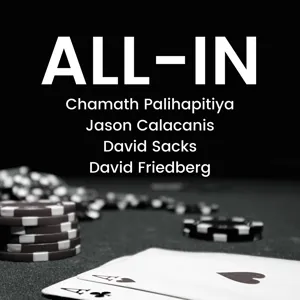Podcast Summary
Standardized tests in college admissions eliminated, but new research reveals potential unintended consequences: New research suggests that the elimination of standardized tests in college admissions may have unintended consequences, including reducing the level playing field and increasing advantages for wealthier applicants.
The elimination of standardized tests like the SATs in college admissions, a move driven by concerns over diversity and COVID-19, may have unintended consequences. New research suggests that these tests, despite their criticisms and the challenges faced during the pandemic, play a crucial role in ensuring a level playing field in college admissions. The study revealed that wealthier applicants hold significant advantages in the process, and standardized tests, like the SATs, were believed to be one of those advantages due to access to test prep classes. However, with the tests now optional, there's growing concern that colleges have made a mistake and should reconsider their test requirements.
Biases in College Admissions Beyond Test Scores: Access to enriching experiences and resources for essay writing and school recommendations significantly impact college admissions, perpetuating economic disparities.
While standardized tests like the SAT can create an advantage for wealthier students due to test prep and resources, other aspects of the college admissions process, such as extracurricular activities, essay writing, and school recommendations, may be more biased towards the wealthy. Despite common belief, test prep actually has a negligible impact on the SAT score gap between wealthy and less affluent students. Instead, other factors like access to enriching experiences and resources for essay writing and school recommendations play a significant role in perpetuating economic disparities in college admissions.
Standardized tests reflect societal inequities: Standardized tests serve as a mirror to societal disparities and are a valuable tool for predicting academic success in college, particularly at selective institutions.
The economic and racial gaps in standardized test scores, such as the SAT and the NAP, are a reflection of broader societal inequities rather than being caused by test prep or bias in the tests themselves. These tests serve as a mirror to the underlying issues of economic and racial disparities in American life. While the tests should not be the sole factor in college admissions, they are a valuable tool for predicting academic success in college, particularly at selective institutions. High school grades alone are not as reliable a predictor due to grade inflation and significant variations between schools. Standardized tests provide a more consistent measure for college admissions officers to make informed decisions. Additionally, the tests offer opportunities for students from disadvantaged backgrounds to demonstrate their academic potential.
Standardized tests like SAT help identify potential in disadvantaged students: Standardized tests provide colleges with valuable information to assess potential in students from disadvantaged backgrounds, promoting diversity in college classes.
Standardized tests like the SAT can play a crucial role in college admissions, particularly for students from disadvantaged backgrounds. These tests can help admissions officers identify promising students whose high school grades may not fully represent their potential. MIT, one of the most selective colleges in America, has found that using the SAT as one factor in admissions allows them to admit a diverse class that performs well on campus. However, it's important to note that colleges must use these tests responsibly and in conjunction with other factors to ensure fairness and accuracy in the admissions process.
The Role of SAT Scores in Elite University Admissions: MIT's Dean of Admissions recognizes the importance of considering SAT scores, but also emphasizes the need to evaluate students' economic backgrounds, academic performance, and other factors in the admissions process.
While the SAT may not be a perfect measure of a student's potential for success at elite universities like MIT, it still plays an important role in the admissions process when used in conjunction with other factors. MIT's Dean of Admissions, Stuart Schmill, emphasizes the importance of considering students' economic backgrounds, academic performance, and other aspects of their applications in addition to their SAT scores. The SAT remains a widely supported measure for college admissions among the general public, but its use has become controversial on college campuses due to concerns over its potential impact on diversity. These concerns stem from the historical context of standardized testing, which was developed during the progressive era and had racist undertones. Despite the data showing the value of using the SAT in conjunction with other factors, many colleges and universities on the political left continue to resist its use due to fears it could reduce campus diversity.
The Complex History of Standardized Tests: Early standardized tests aimed to expand opportunities but were later used for racial bias, and colleges now reconsider their use, facing potential legal challenges
The history of standardized tests, like the SAT, is complex and multifaceted. While some early proponents saw these tests as a means to expand opportunities for underrepresented students, others used them to restrict opportunities based on racial biases. Today, critics continue to emphasize the latter, linking the test's racist origins to current economic and racial disparities. However, some colleges are reconsidering their stance on standardized tests due to their potential to create diverse student bodies. Yet, this decision comes with risks, as the absence of standardized tests may lead to more subjective admissions processes, which could potentially expose colleges to legal challenges. The recent Supreme Court decision banning the use of race in college admissions adds to the colleges' anxiety, as they navigate the admissions process under increased scrutiny.
The Debate Over SAT Scores in College Admissions: The use of SAT scores in college admissions is a contentious issue, with valid arguments for and against. While some believe it's not necessary, others think it's valuable for identifying highly qualified students. The conversation should focus on finding a balanced approach that ensures access to quality education for all qualified students.
The use of SAT scores in college admissions remains a contentious issue, with valid arguments on both sides. While some argue that top universities are successfully creating diverse classes without relying on the SAT, others believe that the test provides valuable information for identifying highly qualified students. The debate raises questions about the potential costs and benefits for schools in using or not using the SAT, as well as the broader mission of higher education to balance excellence and social mobility. Ultimately, the legal and ethical implications of this issue are still uncertain, and the conversation should focus on finding a balanced approach that ensures access to quality education for all qualified students.
Higher education's core purpose debate: Merit vs Diversity: Higher education institutions are reevaluating their admissions policies, balancing merit and diversity goals, and facing complexities from standardized tests and Supreme Court decisions.
Higher education is currently facing a significant debate about its core purpose – to promote diversity and reduce inequality or to focus on merit and individual potential. Both goals are desirable, but they can be at odds with each other. The use of standardized tests, for instance, can increase merit-based admissions but may also decrease diversity. Schools are now reevaluating their admissions policies in light of new evidence on standardized tests and a Supreme Court decision on admissions. This is a pivotal moment for higher education as institutions grapple with these complexities and decide on their future direction. Other news includes the US military's recent strikes in Yemen and the ongoing global trade tensions. The Daily was produced by Stella Tan, Shannon Lin, Lisa Chow, Devin Taylor, Susan Lee, Mary Ann Lozano, and Chris Wood.






